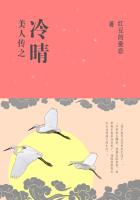"The year before last the Commonwealth Scientific and Industrial Research Organization started an experimental program in Victoria, infecting rabbits with this virus thing they'd bred. I'm not sure what a virus is, except I think it's a sort of germ. Anyway, they called theirs the myxomatosis virus. At first it didn't seem to spread too well, though what bunnies caught it all died. But about a year after the experimental infection it began to spread like wildfire, they think mosquito-borne, but something to do with saffron thistle as well. And the bunnies have died in millions and millions ever since, it's just wiped them out. You'll sometimes see a few sickies around with huge lumps all over their faces, very ugly-looking things. But it's a marvelous piece of work, Ralph, it really is. Nothing else can catch myxomatosis, even close relatives. So thanks to the blokes at the CSIRO, the rabbit plague is no more."
Cardinal Ralph stared at Frank. "Do you realize what it is, Frank? Do you?" Poor Frank shook his head, wishing everyone would let him retreat into anonymity.
"Mass-scale biological warfare. I wonder does the rest of the world know that right here in Australia be tween 1949 and 1952 a virus war was waged against a population of trillions upon trillions, and succeeded in obliterating it? Well! It's feasible, isn't it? Not simply yellow journalism at all, but scientific fact. They may as well bury their atom bombs and hydrogen bombs. I know it had to be done, it was absolutely necessary, and it's probably the world's most unsung major scientific achievement. But it's terrifying, too."
Dane had been following the conversation closely. "Biological warfare? I've never heard of it. What is it exactly, Ralph?"
"The words are new, Dane, but I'm a papal diplomat and the pity of it is that I must keep abreast of words like "biological warfare." In a nutshell, the term means myxomatosis. Breeding a germ capable of specifically killing and maiming only one kind of living being."
Quite unselfconsciously Dane made the Sign of the Cross, and leaned back against Ralph de Bricassart's knees. "We had better pray, hadn't we?" The Cardinal looked down on his fair head, smiling.
That eventually Frank managed to fit into Drogheda life at all was thanks to Fee, who in the face of stiff male Cleary opposition continued to act as if her oldest son had been gone but a short while, and had never brought disgrace on his family or bitterly hurt his mother. Quietly and inconspicuously she slipped him into the niche he seemed to want to occupy, removed from her other sons; nor did she encourage him to regain some of the vitality of other days. For it had all gone; she had known it the moment he looked at her on the Gilly station platform. Swallowed up by an existence the nature of which he refused to discuss with her. The most she could do for him was to make him as happy as possible, and surely the way to do that was to accept the now Frank as the always Frank.
There was no question of his working the paddocks, for his brothers didn't want him, nor did he want a kind of life he had always hated. The sight of growing things pleased him, so Fee put him to potter in the homestead gardens, left him in peace. And gradually the Cleary men grew used to having Frank back in the family bosom, began to understand that the threat Frank used to represent to their own welfare was quite empty.
Nothing would ever change what their mother felt for him, it didn't matter whether he was in jail or on Drogheda, she would still feel it. The important thing was that to have him on Drogheda made her happy. He didn't intrude upon their lives, he was no more or no less than always. Yet for Fee it wasn't a joy to have Frank home again; how could it be? Seeing him every day was simply a different kind of sorrow from not being able to see him at all. The terrible grief of having to witness a ruined life, a ruined man. Who was her most beloved son, and must have endured agonies beyond her imagination.
One day after Frank had been home about six months, Meggie came into the drawing room to find her mother sitting looking through the big windows to where Frank was clipping the great bank of roses alongside the drive. She turned away, and something in her calmly arranged face sent Meggie's hands up to her heart.
"Oh, Mum!" she said helplessly.
Fee looked at her, shook her head and smiled. "It doesn't matter, Meggie," she said.
"If only there was something I could do!"
"There is. Just carry on the way you have been. I'm very grateful. You've become an ally."















